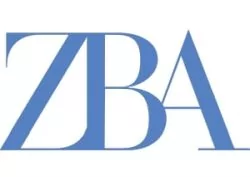Introduction
CoVID-19 has brought India to a standstill, with the Prime Minister of India announcing a country wide lockdown for 21 days until 14 April 2020 and potentially continuing after this. In a series of articles over the coming weeks, the ZBA team will highlight the changes across Indian regulators.
CoVID-19 has made various regulatory compliances difficult for companies, more so since the end of the financial year marks the deadline for multiple filings and data reporting under Indian law. In order to ease this burden on companies and limited liability partnerships ("LLPs") and ensure a smooth national lockdown, the Ministry of Corporate Affairs ("MCA") has announced various measures aimed at relaxing the compliances to be made by Indian companies.
Key Highlights of MCA Announcements
1. Various Exemptions Provided: MCA issued circular (General Circular no. 11/2020) dated 24 March 2020 ("Exemption Circular") providing the following relaxations:
- Relaxation in holding Board Meetings: Companies are required to hold a minimum number of 4 meetings of its board of directors ("Board") every year with not more than 120 days between 2 consecutive Board meetings. Under the Exemption Circular, this requirement has been extended by 60 days so permitted interval between two Board meetings is 180 days. This relaxation is available for the next two quarters ending 30 September 2020.
- Video-Conferencing: Companies can hold Board meetings through video conferencing or other audio visual means until 30 June 2020 for: (i) approval of annual financial statements; (ii) approval of the Board's report; (iii) approval of a prospectus; (iv) audit committee meetings for consideration of financial statements to be approved by the Board; and (v) the approval of amalgamation, merger, demerger, acquisition and takeover. These are otherwise not permitted to be held through video conferencing or other audio visual means.
- New Statutory Audit Form: The updated format for statutory audits of companies was to be effected from financial year 2019-20 under which all companies (except one person company, banking and insurance companies, small companies, non-profit companies) are now mandatorily required to disclose all whistleblower complaints to their auditors. To ease the burden on companies this will now be applicable from the financial year 2020-2021.
- Relaxation for Independent Director Meetings: Independent directors are required to hold at least 1 meeting without the attendance of non-independent directors and management team. For the year 2019-2020, if independent directors have not been able to hold at least 1 meeting, it will not be a violation of the Companies Act 2013 ("Act"). The independent directors can share views between themselves by telephone, email or any other mode of communication, as they may deem fit.
- Delayed Filings: MCA has permitted waiver of additional filing fees for delayed filings by companies and LLPs. This is applicable from 1 April 2020 until 30 September 2020, allowing such entities to make a 'fresh start'.
- Relaxation in Reserve Requirements: A company can accept deposits from its members, subject to meeting certain conditions, including depositing 20% of its deposits amount maturing during the following financial year in the deposit repayment reserve account, on or before the 30th April each year. In respect of bonds or non-convertible debentures, companies must deposit 15% of the debenture amount maturing during the year ending on 31 March 2021 in specified methods of investments or deposits by 31 March 2020. Such investments or deposits are required to be made on or before the 30 April in each year. Both deadlines for deposits and debentures have been extended from 30 April 2020 until 30 June 2020.
- Other Miscellaneous Changes: Under the Act, a newly incorporated company is required to file a declaration of commencement of business within 6 months of its incorporation. An additional 6 months has been provided. Every Indian company must have at least one director who stays in India for at least 182 days in a financial year. Non-compliance will not be a violation of the Act.
2. Corporate Social Responsibility ("CSR") activities: The Act makes it mandatory for companies with either (i) net worth of INR 500 crore or more; (ii) turnover of INR 1000 crore or more; or (iii) net profit of INR 5 crore or more during any financial year, to constitute a CSR committee and formulate a CSR policy indicating CSR activities to be undertaken. It is mandatory that a company spends at least 2% of average net profit for the immediately preceding 3 financial years in every financial year in accordance with the CSR policy. MCA has clarified that spending funds to battle CoVID-19 is an eligible CSR activity. This includes any contribution made to the Prime Minister's Citizen Assistance and Relief in Emergency Situations Fund set up to provide relief to those affected by any kind of emergency or distress situation by the Government of India.
3. Companies Affirmation of Readiness towards COVID-19 ("CAR"): On 23 March 2020 MCA introduced an online form "Form CAR" where companies and LLPs have to confirm compliance with CoVID 19 guidelines issued by public health authorities, including implementation of work from home policy. For ease of filing, no payment is required to file the form and there is no penalty for failure to file.
Conclusion
The MCA relaxations were prompt and required. However, there have been representations received from various sectors of the Indian corporate market requesting MCA for additional changes such as: (i) waiving requirements to record Board meetings held through video conference due to availability of back-end technical support; (ii) creating online system of payment and receipt for stamp duty payments, which can be used as evidence of due payment for both issuance and transfer of shares; and (iii) extension in registration of independent directors for database and for appearing for exams. MCA needs to consider these representations as well and come up with a comprehensive action plan if the pandemic continues.
The relaxation in holding Board meetings is a thoughtful and an essential move, since the end of the financial year marks the requirement of Board approval on crucial aspects like financial statements and dividends. The ability of companies to allocate moneys used for CoVID-19 as part of CSR funds, incentivizes corporates to take the best steps to protect their workforce as well as contribute back to the nation at a time of dire need. In this respect, the CAR form acts as a confidence-building measure between the regulator and the companies to assess the readiness of companies to deal with the pandemic. The objective of these measures is to cushion the impact of CoVID-19 and ensure fast-track recovery. What remains uncertain is whether the deadlines of 30 June in some cases are sufficient or whether further extensions will be required.
The above is a generic analysis and should not be regarded as a substitute for specific advice based on the facts of a client's objectives and specific commercial agreements reached. Please do reach out to us at mail@zba.co.in for any queries.

